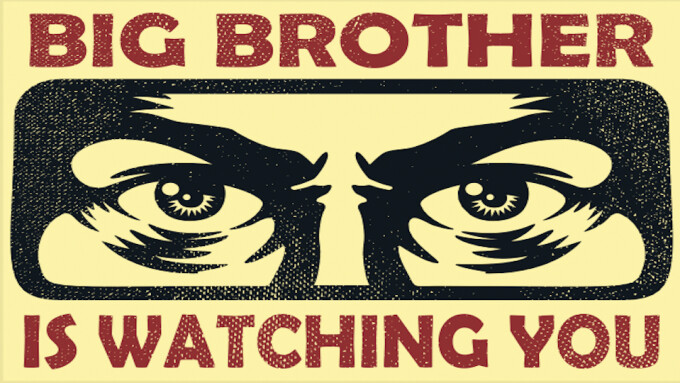LOS ANGELES — Digital rights and adult industry groups are sounding the alarm about the recent onslaught of “porn passport” state laws promoted by anti-porn groups and politicians, mandating various forms of age verification.
Speaking to Mashable’s Anna Iovine, activists with the Electronic Frontier Foundation, Free Speech Coalition and adult performers union APAG weighed in on several ramifications of the porn passport mandates, including potential breaches of privacy and expansion of state and corporate surveillance, coupled with likely ease of exploitation and avoidance by bad actors.
The Mashable article highlights how bills such as Louisiana’s Act 440 — a new law enacted in January after being championed by a religious anti-porn activist Republican legislator — and its many copycat bills threaten digital privacy and free speech.
As XBIZ reported, other porn passport bills include Utah’s SB 287 and other proposed laws in Virginia, Mississippi, Arkansas, Texas and Arizona.
“While these bills may initially seem sound — no one wants children to access adult content — the experts say that they won’t work, and will cause a host of problems,” Iovine notes.
FSC Director of Public Affairs Mike Stabile told Mashable, “My greatest fear when I looked at them was that this is going to push kids to more and more dangerous sites.”
Stabile also pointed out risks to the privacy of those legally browsing for adult content.
“We’ve already heard reports of phishing going on in Louisiana, where people are impersonating adult sites, and getting people to upload their ID and then selling those IDs,” Stabile explained, adding that FSC expects identity theft to skyrocket.
Jason Kelley, associate director of digital strategy at the Electronic Frontier Foundation, shared, “The immediate concerns are that there is no foolproof age-verification system that is not intrusive, comprehensive, effective, and can be introduced quickly. You create this whole ecosystem, where people's individual behaviors — the websites that they visit — can be tracked and connected to their identity. We’re essentially creating this immediate requirement for people to share their private information alongside their pornography preference with companies that don't necessarily have a system in place to protect that data.”
Iovine cites even more expansive attempts to limit access to adult content with the justification of protecting children, including Utah’s SB 152 and HB 311, which “target social media on the whole, and would fundamentally change the internet” and an Ohio bill that would require parental permission for minors to use Facebook, YouTube or “any online website, online service, online product, or online feature that requires consumer consent to register, sign up, or otherwise create a unique username.”
According to Kelley, if even a few such efforts succeed, they could stifle anonymous access to much of the internet, which he sees as a dire prospect for free speech and privacy protection.
“It will be dangerous for everyone in the United States who goes online, because we will not be able to access things privately,” he cautioned.
Noting the already chilling effect of FOSTA, APAG president Alana Evans told Mashable that the new laws will further marginalize performers and other sex workers.
"It’s just going to censor us,” Evans noted. “How is it going to affect a platform like Twitter? If Twitter decides that we can’t advertise my cam links anymore, it would kill my business. It would kill my income.”
A parent herself, Evans also pointed out that there are already much less intrusive ways for parents to shield children from adult content online, including monitoring their devices and engaging in open conversations about sex and porn.
“I worked my butt off to keep my kids away from that material,” she shared. “The most important thing is actually being aware of what your kids are doing in the first place. I don’t think parents should be afraid of having that conversation. If you're having a conversation with them, the curiosity is taken away.”






